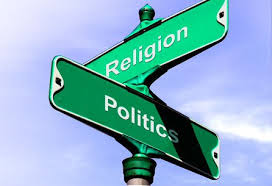 Five secular Bangladeshi writers have been killed since November of 2014: Rajshahi University professor AKM Shafiul Islam, and writers Avijit Roy, Oyasiqur Rahman Babu, Ananta Bijoy Das, and the latest got killed on August 7. Niloy Neel alias Niladri Chatterjee used to write against religious fanaticism, Jamaat-e-Islami as well as on rights issues. Before his murder, Niloy had sought police protection, but refused.
Five secular Bangladeshi writers have been killed since November of 2014: Rajshahi University professor AKM Shafiul Islam, and writers Avijit Roy, Oyasiqur Rahman Babu, Ananta Bijoy Das, and the latest got killed on August 7. Niloy Neel alias Niladri Chatterjee used to write against religious fanaticism, Jamaat-e-Islami as well as on rights issues. Before his murder, Niloy had sought police protection, but refused.
But there is no progress in the investigations, thanks to the reluctance of the Islamic state and its law enforcement agencies.
At least a dozen more have been killed and scores of others attacked or threatened with death for their progressive and secular views, since massive protests erupted in 2013 calling for Islamist parties to be banned. The protesters also demanded that war criminals including some Islamist politicians be hanged for war crimes committed in 1971. A war crimes court handed down a series of death sentences to a number of people including a few Islamist leaders later that year.
All of the murdered bloggers or activists had one thing in common: they openly opposed Bangladesh’s increasingly unpopular largest Islamist party Jamaat-e-Islami, and similar communal Islamist organisations, who have been fighting a losing battle for a more conservative, religion-based legal regime in the country since 1971 when the country first won independence from Pakistan. In 2013, Bangladesh’s Supreme Court declared the Jamaat illegal, blocking it from contesting in the country’s elections.
Law enforcement and the judiciary have failed to adequately investigate the recent killings, some of which have happened with apparent blessings from international militant groups like al-Qaeda.
Bangladesh is a non-religious parliamentary democracy, which means there is no Sharia or blasphemy law. People who identify as atheists have the same rights as other citizens. However, under Section 295A of Bangladesh’s Penal Code (1860), any person who has a “deliberate” or “malicious” intention of “hurting religious sentiments” is liable to imprisonment. While Bangladesh’s constitution has recognised and protected the right to secularism since 2011, it also allows religion-based politics and identifies Islam as its state religion. Government inaction and police ineffectiveness have also given Islamist groups a certain amount of impunity.
Several militant leaders and field-level workers were arrested in a crackdown recently, including an alleged leader of Al-Qaeda’s branch in the region. Al-Qaeda in South Asia has claimed responsibility for the murder of several secular bloggers in Bangladesh this year, including Mukto-Mona blog (free-thinker) founder Avijit Roy.
Law enforcers have also identified new militant organizations that are campaigning against progressive cultural norms to justify the need for Islamic revolution in this state. But the cases of the bloggers and professor mentioned above have scarcely seen progress. Police last week claimed to have identified seven suspected killers of Avijit, saying that their photos had been verified by the wife of the slain blogger, but Mukto-Mona blog refuted the claim on Thursday.
Global Voices contacted several secular bloggers and online activists to know their views regarding the recent killings, investigation process and possible future plan of the militant groups operating in the country. We received responses from four individuals. Several others refrained from making any comment out of fear of reprisal.
